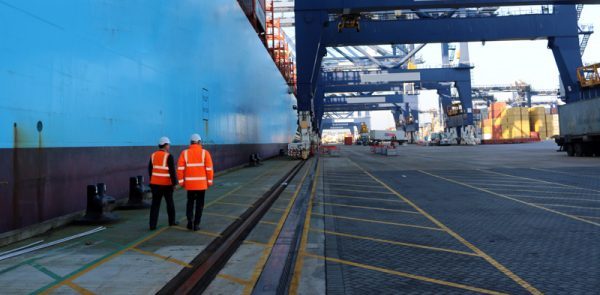The ILO issued second revision of its guidelines for port State control officers carrying out inspections under the Maritime Labour Convention, 2006 as amended (MLC, 2006), providing practical advice to PSC officers verifying compliance of foreign ships with the requirements of the MLC, 2006.
The Guidelines, initially adopted in 2008, were updated by the ILO in 2020, together with the Guidelines for flag State inspections under the Maritime Labour Convention, 2006 as amended, in order to reflect the 2014, 2016 and 2018 amendments to the Code of the Maritime Labour Convention, 2006.
[smlsubform prepend=”GET THE SAFETY4SEA IN YOUR INBOX!” showname=false emailtxt=”” emailholder=”Enter your email address” showsubmit=true submittxt=”Submit” jsthanks=false thankyou=”Thank you for subscribing to our mailing list”]
PSCOs should use their professional judgement in carrying out all duties, and consult others where they consider it appropriate to do so. To ensure consistent enforcement of port State control requirements, PSCOs should carry a copy of the MLC, 2006, and of these guidelines, either in a digital format or paper copy, for ready reference when carrying out any port State control inspections. The PSCO may also have a copy of the Guidelines for flag State inspections under the MLC, 2006.
Examples of circumstances that may require detention of the ship
Not every deficiency would be sufficiently serious to warrant preventing a ship from sailing. However repeated breaches may be a reason for detaining a ship. The following are examples of the kinds of circumstances which could warrant a decision to keep the ship in port (in the absence of agreement on a proposal for a plan of action to rectify the deficiency) either because they are repeated (in the sense of occurring several times on a voyage or recurring after a previous voyage in which the same deficiency was noted) or because of the seriousness of a single instance:
- the presence of any seafarer onboard under the age of 16 (Standard A1.1, paragraph 1);
- the employment of any seafarer under the age of 18 in work likely to jeopardize their health or safety (Standard A1.1, paragraph 4) or in night work (see Standard A1.1, paragraphs 2 and 3);
- insufficient manning (Regulation 2.7 and Standard A2.7), including that caused by the removal from the SMD of under-age seafarers;
- any other deficiencies constituting a violation of fundamental rights and principles or seafarers’ employment and social rights in Articles III and IV;
- any non-conformity applied in a way that violates those fundamental rights (for example, the attribution of substandard accommodation based on the race or gender or trade union activity of the seafarers concerned);
- repeated cases of seafarers without valid certificates confirming medical fitness for duties (Standard A1.2);
- seafarers onboard the same ship repeatedly not in possession of valid seafarers’ employment agreements (SEAs) or seafarers with SEAs containing clauses constituting a denial of seafarers’ rights (Regulation 2.1, paragraph 1);
- seafarers repeatedly working beyond maximum hours of work (Standard A2.3, paragraph 5(a)) or having less than the minimum hours of rest (Standard A2.3, paragraph 5(b));
- ventilation and/or air conditioning or heating that is not working adequately (Standard A3.1, paragraph 7);
- accommodation, including catering and sanitary facilities, that is unhygienic or where equipment is missing or not functioning (Standards A3.1, paragraph 11, and A3.2, paragraph 2; Regulation 4.3, paragraph 1);
- quality and quantity of food and drinking water not suitable for the intended voyage (Standard A3.2, paragraph 2);
- medical guide or medicine chest or medical equipment, as required, not on board (Standard A4.1, paragraph 4(a));
- no medical doctor for passenger ships engaged in international voyages of more than three days, carrying 100 persons or more, or no seafarer in charge of medical care onboard (Standard A4.1, paragraph 4(b) and (c));
- repeated cases of non-payment of wages or the non-payment of wages over a significant period or the falsification of wage accounts or the existence of more than one set of wage accounts (Standard A2.2, paragraphs 1 and 2).
In considering the above examples, particular reference should be made to the guidance to be provided to PSCOs by their authority in accordance with Standard A5.2.1, paragraph 7, which requires PSCOs to be “given guidance, of the kind indicated in Part B of the Code, as to the kinds of circumstances justifying detention of a ship under paragraph 6 of this Standard”.
Guideline B5.2.1, paragraph 1, recommends that there should be an inspection policy for PSCOs with the objective of ensuring consistency and otherwise guiding inspection and enforcement activities related to the requirements of this Convention (including seafarers’ rights).
Guideline B5.2.1, paragraph 2, indicates circumstances warranting the detention of a ship considering that with respect to the breaches referred to in paragraph 6(b) of Standard A5.2.1, the seriousness could be due to the nature of the deficiency concerned. This would be particularly relevant in the case of the violation of fundamental rights and principles or seafarers’ employment and social rights under Articles III and IV.
For example, the employment of a person who is under age should be considered as a serious breach even if there is only one such person onboard.
In other cases, the number of different defects found during a particular inspection should be taken into account: for example, several instances of defects relating to accommodation or food and catering which do not threaten safety or health might be needed before they should be considered as constituting a serious breach.
See also: Tokyo MoU: Guidance on remote PSC inspections
Action to be taken if the ship is not allowed to sail
Where an agreement is not concluded on rectification, including the time frame for it to be carried out, the ship must not be allowed to proceed to sea. The PSCO must forthwith (by email or fax or similar means of communication):
- notify the flag State;
- invite a representative of the flag State to be present, if possible; and
- request the flag State to reply within a reasonable deadline (Standard A5.2.1, paragraph 6).
The PSCO must also inform forthwith the appropriate shipowners’ and seafarers’ organizations in the port State. In performing their functions referred to in this section, PSCOs should bear in mind the obligation of port States under Standard A5.2.1, paragraph 8, to make all possible efforts to avoid a ship being unduly detained or delayed, and to pay compensation for any loss or damage suffered if a ship is found to be unduly detained or delayed. The burden of proof in each case is on the complainant.































































